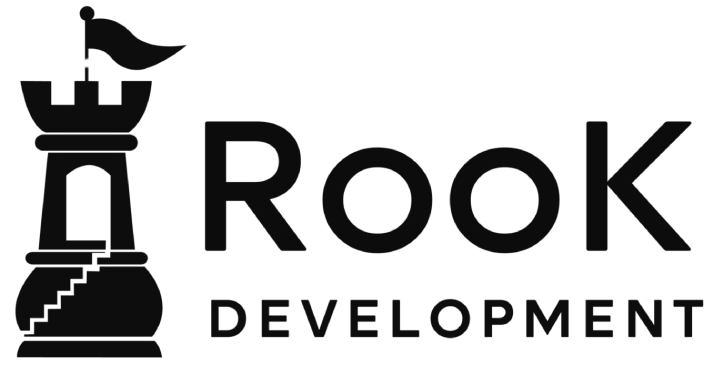Understanding the Egyptian Mortgage Market
The Egyptian mortgage market has undergone significant transformations over the years, evolving to meet the needs of both local and foreign investors. Historically, the market faced numerous challenges, including limited product offerings and high-interest rates, hindering accessibility for many potential borrowers. However, recent regulatory reforms and increased competition among financial institutions have contributed to a more favorable environment for prospective homeowners, including foreigners seeking housing in Egypt.
As of now, the market offers a range of mortgage products designed to cater to diverse needs and budgets. Foreign investors typically have access to a variety of mortgage options, including fixed-rate loans, variable-rate loans, and even Islamic financing options tailored to comply with Sharia law. Such diversity allows eligible foreigners to choose a loan product that aligns with their financial situation and long-term plans. It is noteworthy that, in general, these mortgages require documents confirming employment and financial stability, alongside proof of residency within Egypt.
The key players in the Egyptian mortgage market include commercial banks and dedicated mortgage finance companies. Increased cooperation between these entities has led to streamlined processes and a wider selection of mortgage options. The Housing and Development Bank, the National Bank of Egypt, and various private banks are among the notable institutions actively involved in this space. Additionally, the Egyptian government has introduced incentives to promote homeownership, making it an attractive market for abroad investors.
Understanding the intricacies of the Egyptian mortgage market can significantly impact a foreigner’s ability to secure financing and navigate the purchasing process effectively. Proper insight into current trends, regulations, and the types of available mortgage products is essential for anyone considering a mortgage in this vibrant market.
Eligibility Criteria for Foreigners
Obtaining a mortgage in Egypt as a foreigner entails adhering to specific eligibility criteria set forth by financial institutions. While these criteria may vary between banks, several common requirements exist that potential applicants should be aware of.
Firstly, foreign applicants are typically required to provide valid identification, such as a passport, to confirm their identity and nationality. Additionally, proof of legal residency status in Egypt may be mandatory. This can include residence permits or any other documentation that affirms an individual’s right to reside in the country legally.
Another critical aspect of the mortgage application process relates to financial documentation. Foreign applicants must demonstrate their financial stability and ability to repay the loan. This usually involves providing proof of income, which can be sourced from employment contracts, pay slips, or bank statements. Some banks may also ask for proof of additional financial assets or savings, which can bolster an applicant’s position.
Moreover, prospective borrowers may be required to provide a credit report, either from their home country or from an international credit bureau. This report helps lenders assess the applicant’s creditworthiness and repayment history, which are vital in determining the risk level of lending to a foreigner.
Furthermore, banks may impose specific limits on the loan-to-value ratio for properties purchased by foreigners, influencing the amount of mortgage that can be obtained. Typically, this value can range from 50% to 70% of the property’s market value. Understanding these nuances is essential for foreigners seeking a mortgage in Egypt, as compliance with these eligibility criteria greatly enhances their chances of securing financing.
The Mortgage Application Process
Applying for a mortgage in Egypt as a foreigner involves several important steps to ensure a smooth experience. The first stage begins with understanding your financial situation and determining how much you can afford. It is advisable to conduct preliminary research regarding various financial institutions in Egypt as they differ in their mortgage offerings and eligibility criteria. Look for banks that have established procedures to accommodate expatriates, as they will be more familiar with the requirements.
Once you have selected a few banks, the next step is to gather the necessary documentation. This typically includes identification such as a passport, proof of residence, and employment documentation or evidence of income. Many banks may also require a credit report or references verifying your financial history. Preparing these documents in advance can expedite the application process significantly.
After preparing your paperwork, you can schedule an appointment with the bank to formally submit your mortgage application. During this meeting, the bank will review your documentation and assess your eligibility. It is essential to be transparent and provide all requested information to avoid delays. The bank may also present different mortgage products, so it is essential to understand the terms and conditions associated with each option.
Following the submission, the bank will process your application, which can take several weeks. During this period, the bank may conduct an appraisal of the property you wish to purchase. Once approved, a formal mortgage offer will be made, outlining the loan amount, interest rates, and repayment terms. After accepting the offer, the final step involves the disbursement of funds, allowing you to proceed with the property purchase. Engaging with a local real estate agent or legal advisor may also be beneficial, as they can guide you through the intricacies of the Egyptian mortgage landscape.
Common Challenges and Solutions
Obtaining a mortgage in Egypt as a foreigner can be a complex process due to several challenges that applicants may encounter. One of the primary issues faced by foreigners is language barriers. Many financial institutions, legal documents, and regulations are primarily in Arabic. This can create misunderstandings or lead to confusion regarding the mortgage application process. To mitigate this challenge, it is advisable to seek assistance from bilingual professionals, such as real estate agents or lawyers who specialize in mortgages and property transactions. Their expertise can facilitate a smoother communication process and help expatriates understand the necessary documentation and requirements.
Another significant hurdle involves navigating the local regulations governing mortgage applications. Foreigners may not be familiar with regional laws, which can vary significantly from those in their home countries. Understanding these regulations can prevent delays in the mortgage process. To address this, potential borrowers should engage with local experts who can provide insights into the legal landscape surrounding property ownership and financing. Additionally, it may be beneficial to review official resources or government websites that outline foreign ownership laws and financing options available to expatriates.
Lastly, dealing with financial institutions can also be daunting. Many banks may have stringent requirements for foreign nationals, including higher down payments or limited financing options. An effective strategy to navigate this challenge is to shop around for different lenders. Each institution may offer different terms and conditions, and comparing these can lead to better mortgage solutions tailored to specific needs. Building a relationship with a financial advisor familiar with the local market can also prove invaluable in identifying the few lending institutions that cater specifically to foreigners.





Join The Discussion